
Annika Bounkeua, 17 January, 2023
Find out exactly what it’s like to study biomedical science from recent graduate Annika Bounkeua.
Read about:
- Why biomedical science
- Learning in a laboratory
- Experiences on placement
- Scholarships
- Uni life and tips for new students
Why did you choose biomedical science?
Before coming to study at QUT, I trained at Queensland Ballet as a ballerina. As a dancer, you learn to be very aware of your body. After fracturing my foot which put me out for weeks, I spent time learning about my injury and how to manage it. I discovered that I loved learning about how to diagnose, manage and treat injuries and illnesses. From that point on, I knew that I wanted to work in a health field and have developed a strong passion for supporting and assisting other people.
Having recently graduated from my Bachelor of Biomedical Science at QUT, I've continued my academic journey and have recently commenced postgraduate studies in a Doctor of Medicine. My dream career is to practice as a doctor and I am incredibly excited to have the opportunity to work towards that in my current degree. I want to be able to work in a progressive field that continually gives back to others, and I believe a career in health will provide me with fulfilling opportunities to do exactly that!
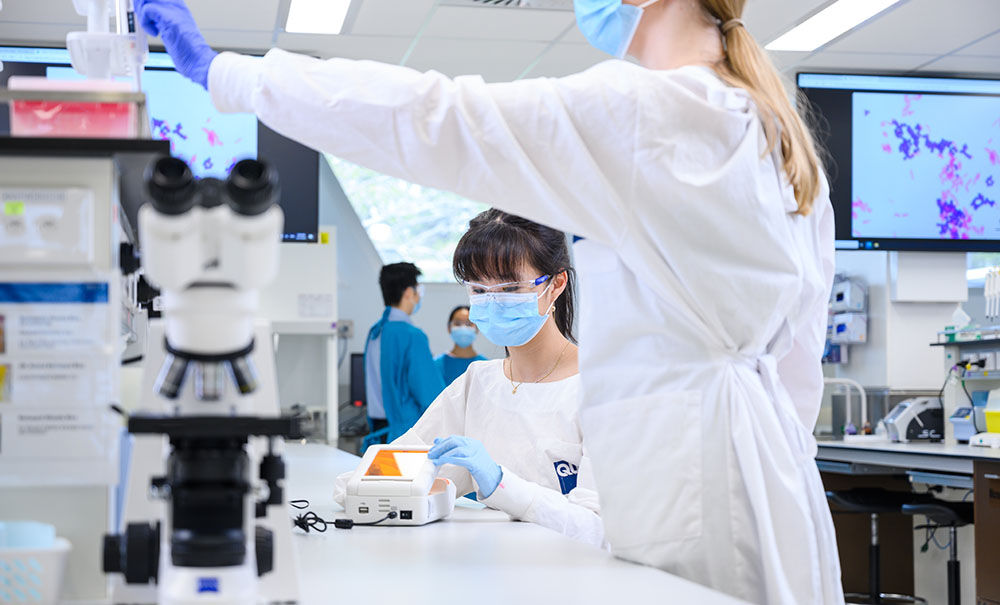
How often do you get to learn in a laboratory?
QUT’s biomedical science degree has a major focus on offering as many practical classes as possible, so students can receive consistent exposure and learning in the laboratory. There are weekly practicals for all units, so we could be in the laboratory for up to 10-12 hours a week, which is not commonly offered in other biomedical science degrees. These practical classes provide us with invaluable laboratory experience that prepares us with the skills we’ll need in our field.
What internship or placement opportunities have you had?
Over the summer period before my final year, I had the absolute privilege of being placed at the Mater Hospital in Neuroscience with the Advanced Epilepsy Unit (MAEU) to complete a 10-week placement (400hrs!). I had the opportunity to work alongside the neurophysiologists who specialise in researching, diagnosing and treating epilepsy inpatients, outpatients and emergency patients.
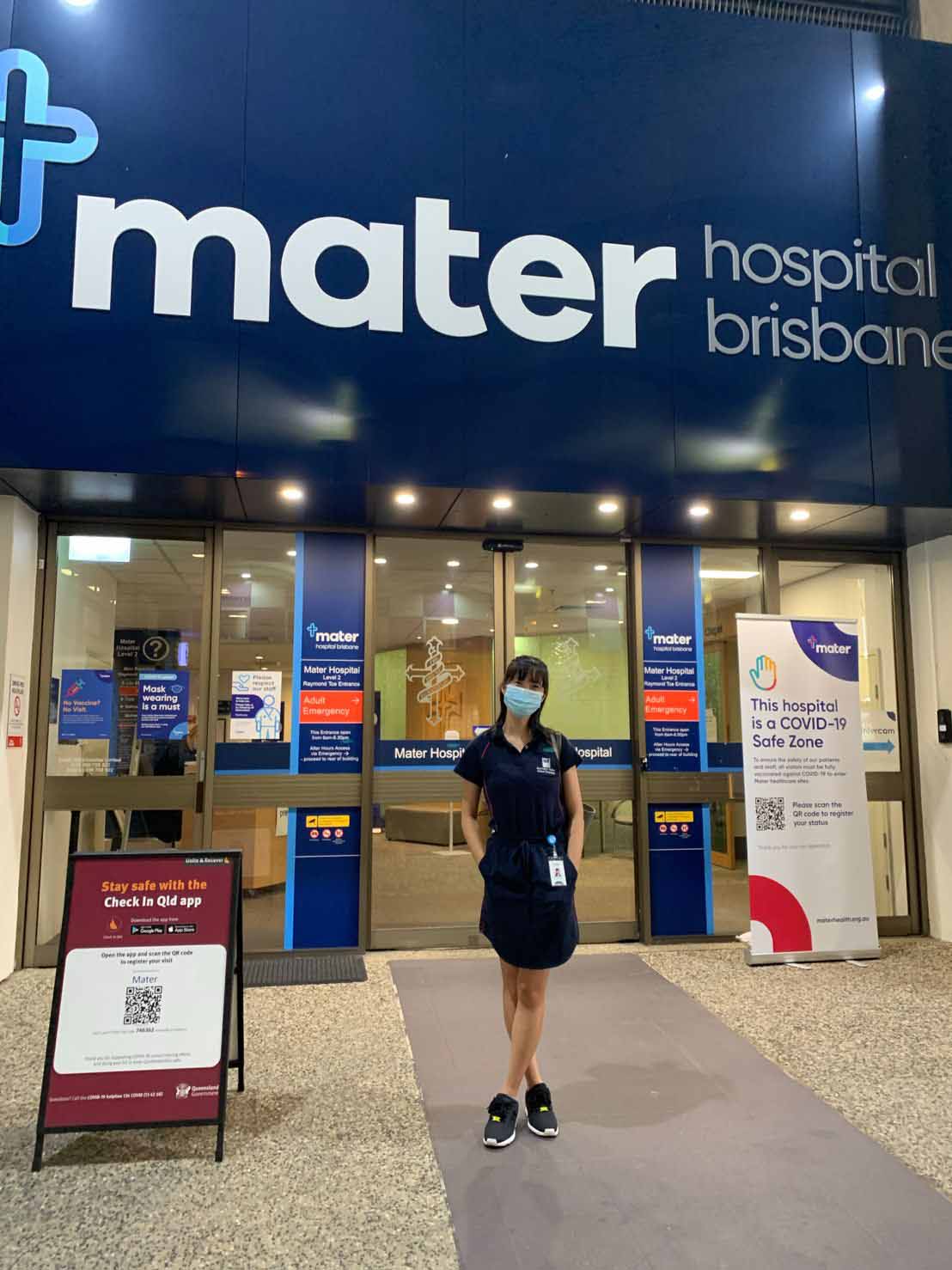
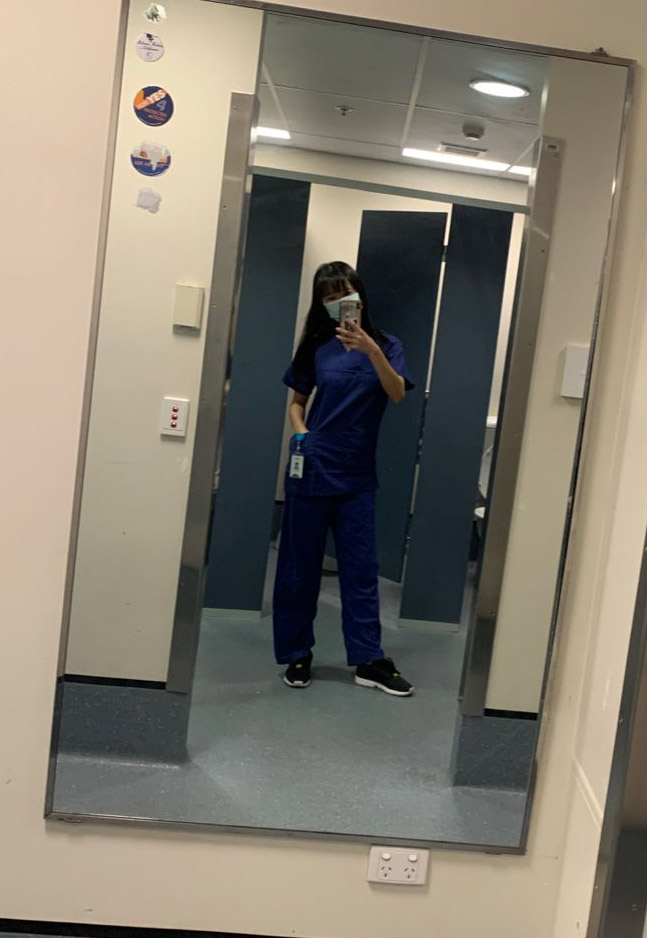
It was exciting and eye-opening to experience working in a hospital firsthand—this is ideally where I’d like to work further on in my career as a doctor. I was guided by my placement supervisor and the MAEU neuroscientist team through learning about epilepsy, holistic patient care, and how to perform and interpret electroencephalograms (EEG's) from the bottom up.
What was the most exciting part of your internship?
The MAEU team is the only medical team in all of Queensland, and only one of few hospitals in Australia that offer Stereotactic EEG (SEEG) procedures for their epilepsy patients.
SEEG is an advanced monitoring and diagnostic procedure that allows the brain to be mapped to identify areas that initiate/contribute to potential epileptic activity. This involves the use of ROSA, a million-dollar surgical robot assistant, a senior epilepsy consultant, and neurosurgeon preforming the procedure in the operating theatre. By doing this, the team is able to set up a treatment plan for potential resection of areas of the brain that are involved in initiating seizures, to help patients along their journey to reaching seizure freedom and being cured from epilepsy.
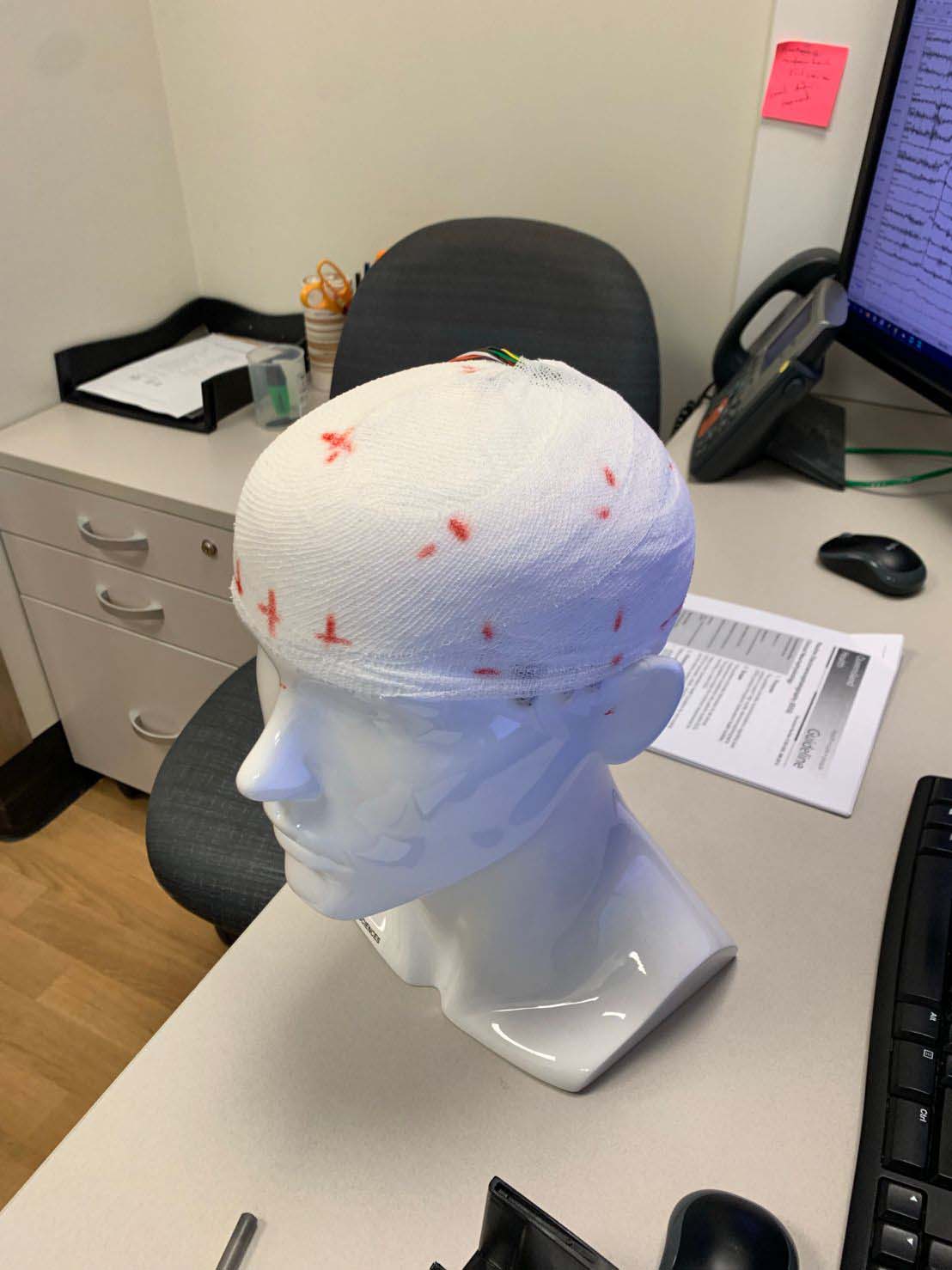
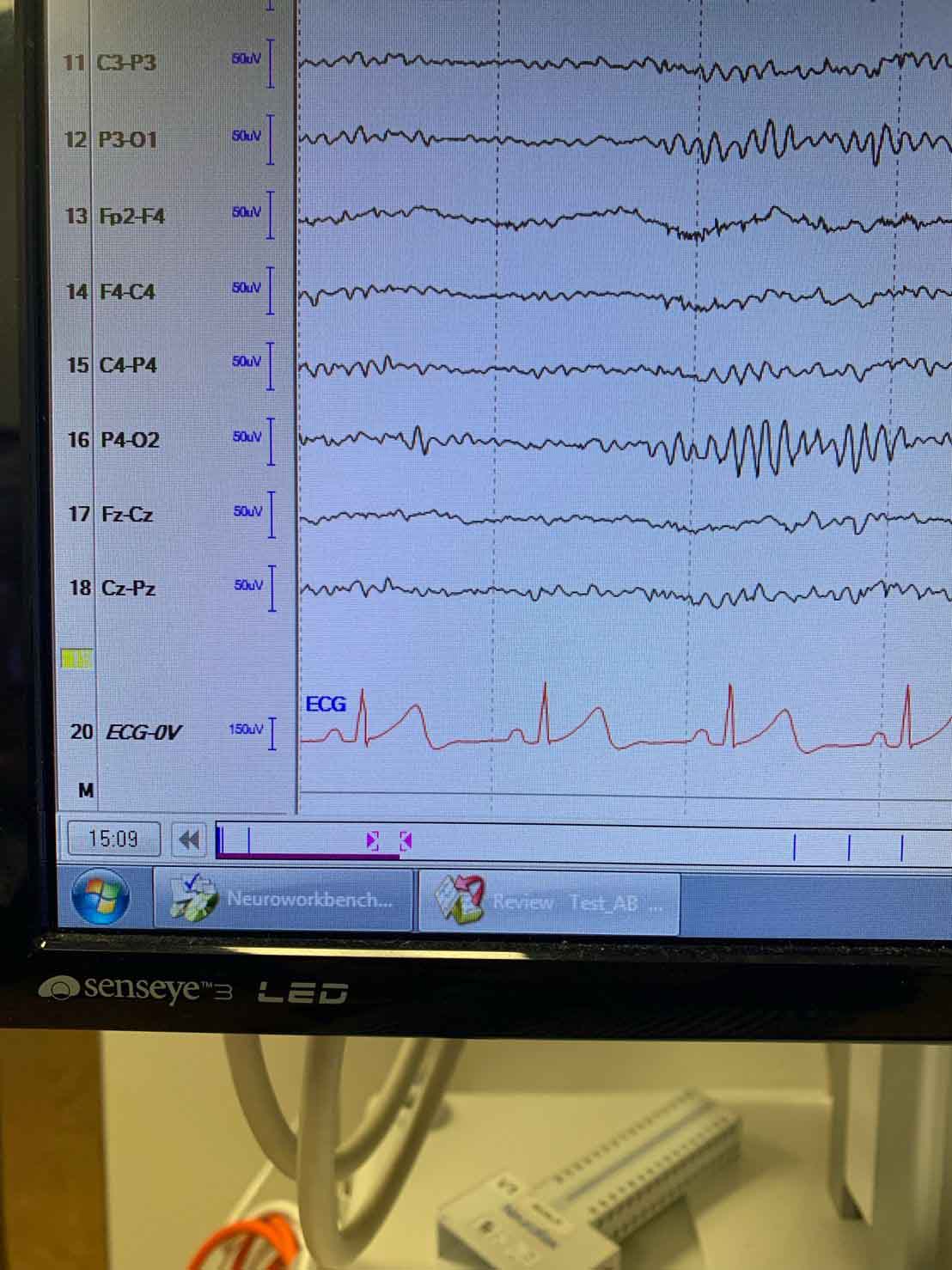
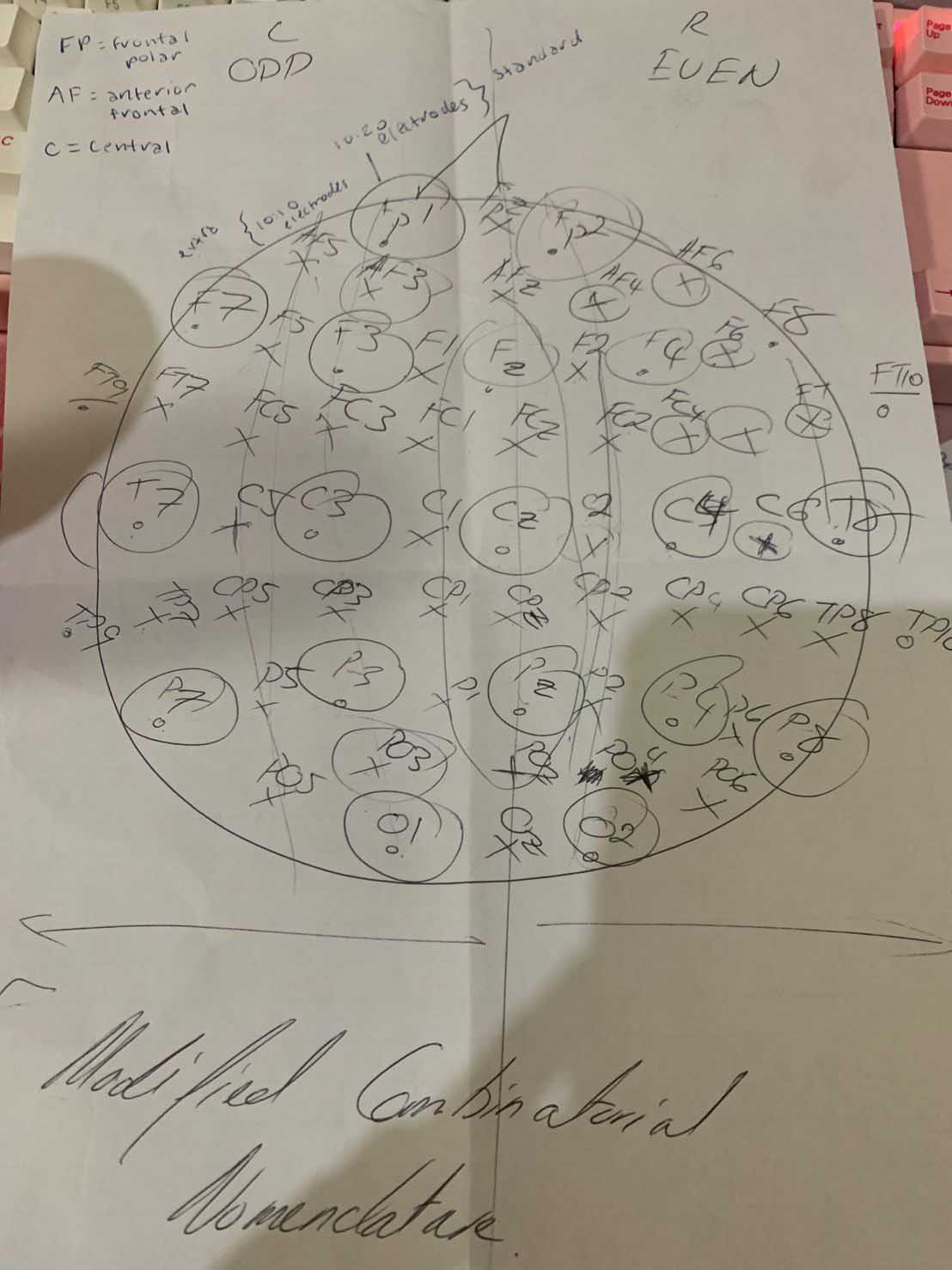
I had the opportunity to scrub up and observe this neurosurgery procedure in theatre. It was an incredible and very rare opportunity for an undergraduate to be in the operating theatre. Alongside this, my day-to-day involved performing EEG's in our outpatients appointments and on inpatients at doctor's requests. I even had an EEG performed on myself, so I could experience what the procedure was like from a patient’s point of view!
I gained an invaluable experience working in multiple wards within Mater's public and private hospitals. The knowledge and skills I developed working with patients and alongside medical professionals as a part of the medical multidisciplinary team, have set me up for a smooth transition into my postgraduate medical degree. I’m so grateful to the MAEU for the most incredible 10 weeks and for all of their teaching, guidance and support.
Have you received any scholarships?
I’ve received the QUT Academic Excellence Scholarship, which has greatly benefitted my overall experience at QUT, it has allowed me to study while alleviating any financial stress. I’ve also received a bursary as a part of a fellowship that I undertook with the College of Excellence—this experience was incredibly rewarding and the bursary covered academic expenses to sit my medical school entrance exams (the GAMSAT).
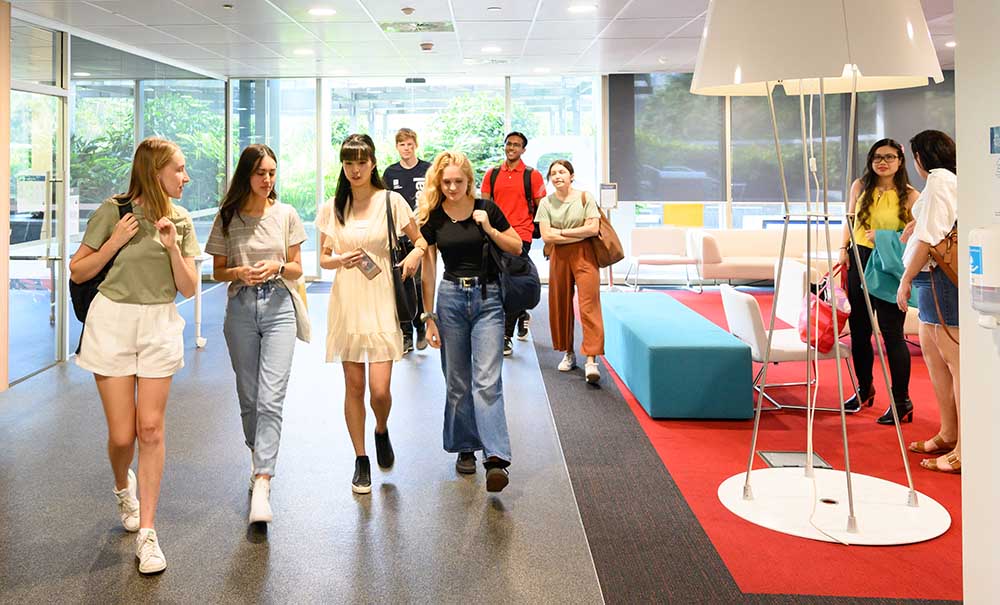
What do you enjoy about being a student?
I’ve really enjoyed the warm, friendly culture of our university. I love getting really involved and the plethora of diverse student-lead clubs and societies that QUT offers, always provide a fun and exciting range of events and experiences for students outside of their learning. I was the Vice-President of QUT BiOMS (Biomedical Science Society) and really enjoyed organising and facilitating events for our members. I’ve also had the privilege of completing a Fellowship with QUT’s College of Excellence that provided me with invaluable leadership and event planning experience.
What are your tips for new students?
Get involved! It was the best advice I received on coming to QUT and I'm so glad I followed it! When I started I at QUT I dove headfirst into every opportunity.
I joined heaps of different clubs and societies which later lead me to join some as an executive. As previously mentioned, I was the President of QUT BiOMS (Biomedical Science Society), an Events Coordinator for QUT Bubble Tea Society, a previous Fellow of the College of Excellence and a member of a range of other societies. I thoroughly enjoyed the opportunities to plan, facilitate and meet new members within these communities!
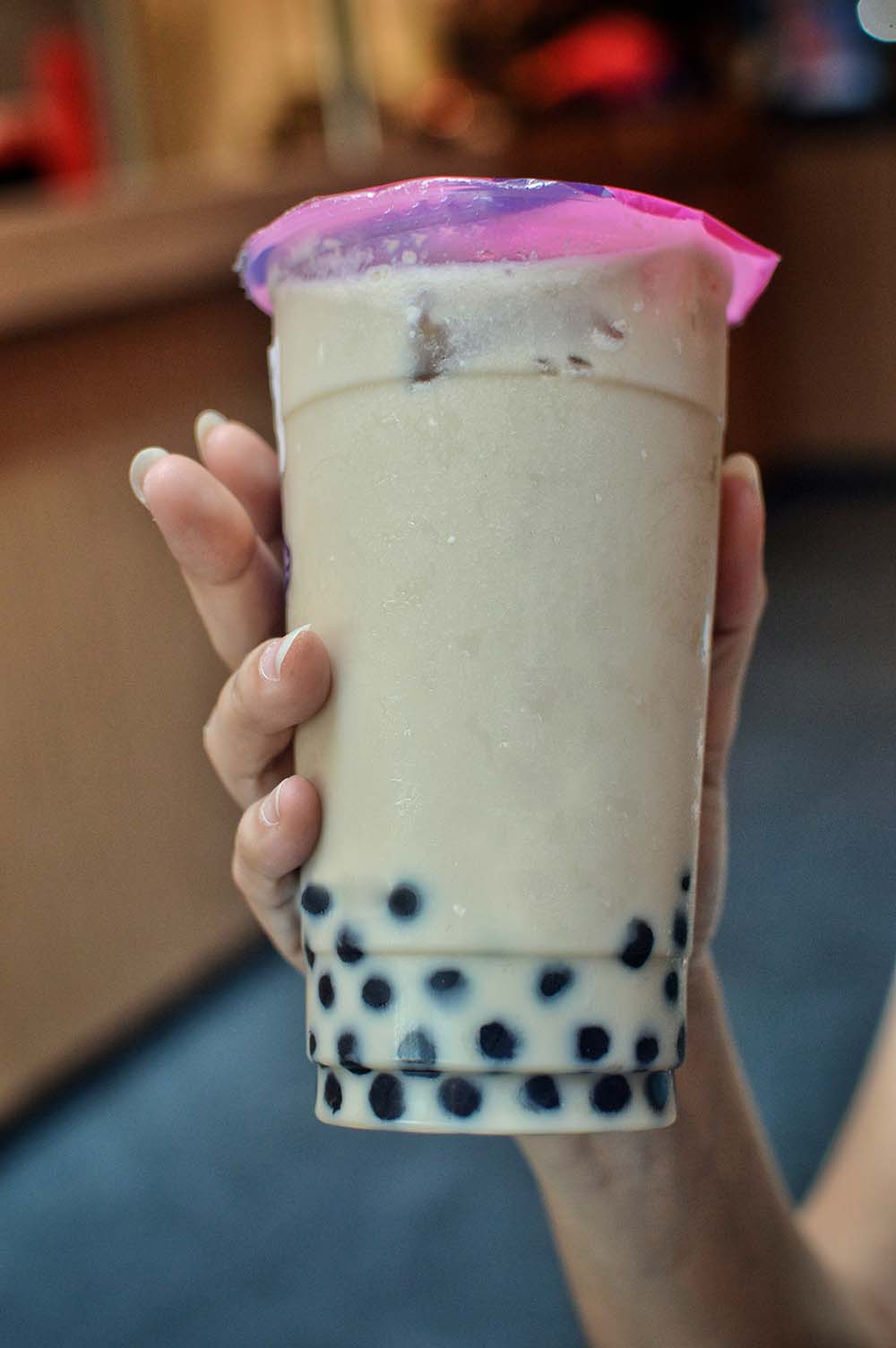
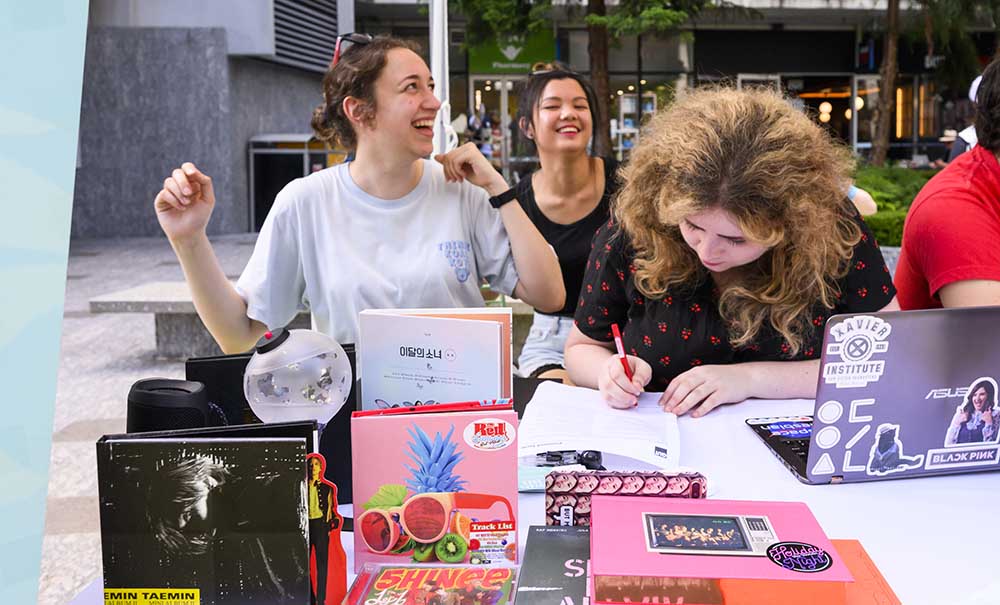
I also attended as many events as I could. All of these opportunities provide me with experiences that allow me to meet heaps of people in other degrees and from different backgrounds, and this alongside my academic experiences that are offered throughout my degree make my time at QUT so fulfilling.
Since publishing Annika has moved interstate and is currently pursuing a Doctor of Medicine (MD) in Sydney. She is excited to learn, grow, and give back to people through the medical profession.
